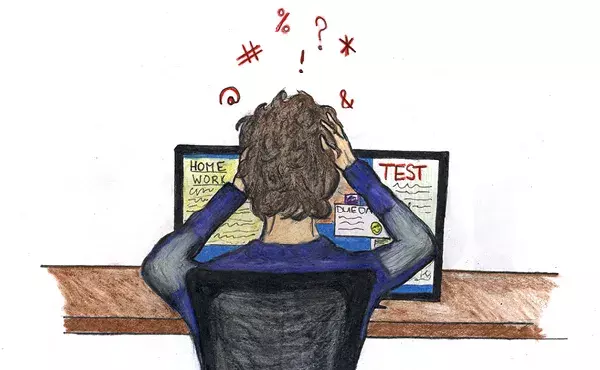One year into my degree, in Fall 2021, I became aware that I spent more time studying at the university of YouTube, or the university of free online textbooks, than McGill itself.
I woke up at 5:30 a.m., a despicably early time, to watch my 8:30 a.m. lecture all the way from Vancouver Island. As I crawled out of bed and logged into the Zoom session, I made a resolution to myself that I would get my life together and start paying attention to class—unlike how I spent most of my time in previous educational institutions. I did not even make it through the first lecture of the day before I exited the class so that I could watch the lecture later at 2.5x speed.
This pattern of trying to attend lectures endured—an endless loop of getting bored watching a professor ramble on, interspersed only by two or three tidbits of information that I would actually need to pass the class.
I realized that it was McGill’s efforts toward my education that were lacking, not mine. Since there has not been a concerted effort by the university to update its outdated method of teaching, if McGill wants its students to succeed, it will need to reevaluate the actual functionality of its pedagogy rather than rely on the prestige associated with its image.
By the beginning of the following semester, I felt frustrated, overworked, and confused as to how I should be learning at McGill. This sort of frustration is common amongst many arriving at university, a transition made more difficult since it coincides with many pivotal moments of personal growth. Everyone has already spent over a decade in the school system and learning feels like it should be easy. Instead, arriving at university feels like you’re repeatedly rolling a boulder over a large mountain, only for the boulder to disappear into the aether of MyCourses.
The attachment to systems that prioritize profit and prestige over student interest makes no sense as the technological landscape has completely changed since then. We do not need to be reliable on typical techniques of in-person instruction when other methods are viable as a result of new technology. Although we received a taste of what education could be during the global pandemic, most professors seem adamant in keeping their teaching format as close to the original as possible.
This inability to adapt is not necessarily professors’ faults. A PhD does not always come with a teacher’s college diploma. Yes, they know the material in and out, but they may not necessarily have the skills to adequately share that content with other people.
Since professors have a responsibility to disseminate their research to the public, having good public relations skills is doubly important. This means that the environments that emphasize research skills over teaching abilities in which they were able to become professors are to blame, not the professors themselves.
McGill should perhaps consider putting more emphasis on the support component of professors’ jobs as opposed to the teaching component. One way to achieve this might be to use standardized videos or curricula for the general instruction of a course and allow professors to focus on providing tutorials.
I am sure some people enjoy lectures and I believe that the teaching materials are extremely important. As a second-year science student, I do not need to sit in a room for an hour. Arts students, please do not harass me, as the need for in-person lectures may vary from faculty to faculty.
Instead of radically rehauling the system, steadily improving pedagogical methods would push universities in the right direction. The pandemic made us slow down and recognize what education strategies work, and which do not. Let’s hope that instead of returning back to normal, we embrace a future that prioritizes student success, rather than the model perception of success that McGill attempts to exude.









